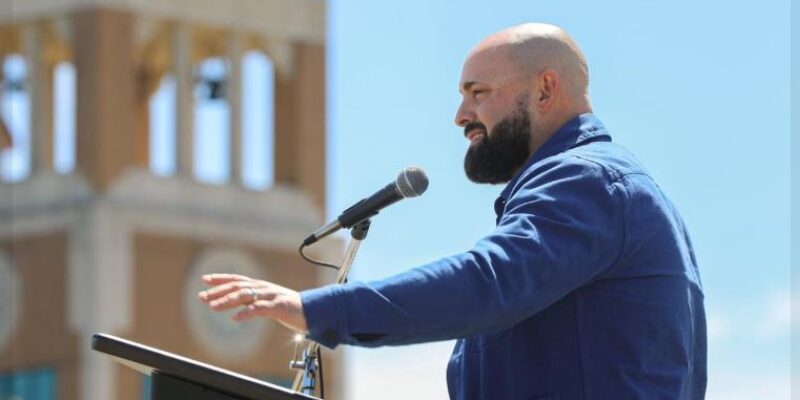Monroe’s politically contentious fire chief appointment saga shouldn’t be the impetus to opening the door to greater folly in the quest for the political power by other elected officials.
After a year-plus political tussle between independent Mayor Friday Ellis and a Democrat-majority City Council over naming a new fire chief, with the Council majority rejecting two appointees for somewhat conflicting reasons, the deadlock was broken this month when Republican Gov. Jeff Landry, under authority granted him by a law backed by Ellis, appointed one of the two Ellis nominees previously rejected. The issue took an ugly turn when members of the Council majority, who are black, called Ellis, who is white, “anti-black” because both nominees are white who would head up a department in a city whose population is almost two-thirds black.
In the wake of the resolution, two of the majority, Rodney McFarland and Verbon Muhammad, speculated that perhaps Monroe, in a move that would require changing the city charter, should have both its police and fire chiefs chosen at the ballot box. That’s an idea that if it ever made it onto the ballot should be rejected by voters.
As do other states, Louisiana builds into its law a default city government structure that may be altered only by a city adopting its own charter or by special legislative act. That default includes an elected police chief but not a fire chief.
Despite that, the trend has been away from electing police chiefs. Almost no city with a charter has an elected police chief, and dozens of the state’s municipalities over the years have had special acts passed replacing an elected with an appointed police chief with none going the other way, and another, in Hall’s Summit, biting the dust in this year’s legislative session.
Elected police chiefs especially are rare among Louisiana’s largest cities such as Monroe. Only Kenner has one, which became a source of political intrigue in 2022 when the incumbent chief ended up running against the incumbent mayor, who he handily defeated.
That illustrates the weakness of this particular kind of arrangement, which to be a problem doesn’t have to devolve into outright conflict between two officials who should work together in order to maximize the chances of superior crime prevention and fighting. Separating executive functions like this creates confusion and accountability issues for the public, as well as potentially inducing inefficiency in public safety provision with the possibility of a mayor and police chief not on the same policy page.
Worse, governance quality likely is diminished. An appointed chief, because of the civil service exam that determines minimal qualifications for a selection, has to demonstrate at least some minimal competence in policing and administration, plus a mayor has every incentive to get a pick right as ineptitude will come back to haunt his reelection chances. No such guarantees exist for an elected chief, who at the time of election doesn’t even have to have any policing background.
Worst of all, corrupt behavior probably becomes more likely. With the office segregated from the rest of city government, it becomes easier for a nefarious occupant of it to hide illegal activities, as a series of arrests earlier this year of elected chiefs involved in an illegal immigration scheme demonstrate.
While elected fire chiefs don’t exist, the same observations would apply. Making part of the elective process a function that should be administered apolitically only invites injecting more forcefully politics and the demerits of that into the performance of that job.
It grates the Council Democrats, who believe the primary qualification for the posts in a majority-black city should be these officials should be black, that two whites hold the chief jobs (the new fire chief scored highest on the exam and has chief experience). They see a move to elections as a way of mobilizing a black majority electorate to elect black chiefs. But regardless of the color of election victors, in terms of service provision Monroe would have more downside than upside under this system as opposed to its current arrangement.
Advertisement
Advertisement

